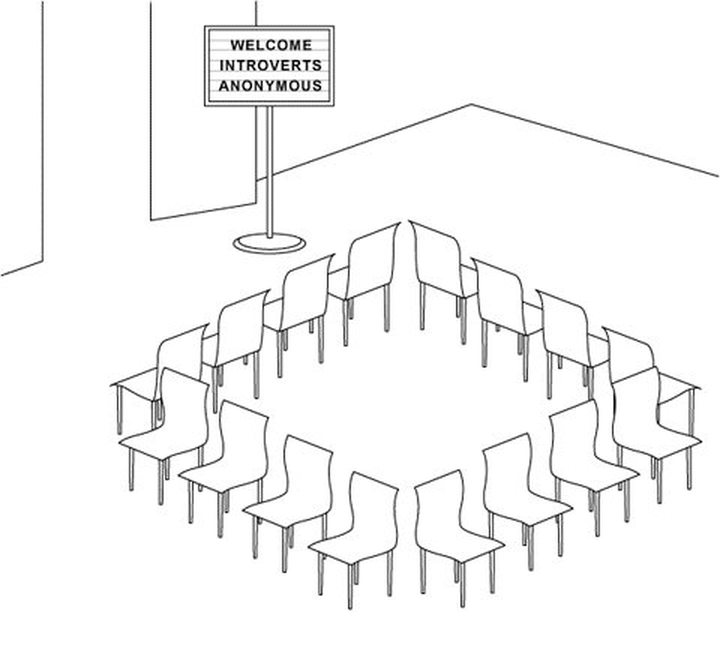The Introvert's Guide to Surviving Teamwork
10 years, 7 months ago - September 03, 2013

The mindset, skillsets, and deliberate practice you'll need to make your mark
For introverts, the increasing use of teams might be one of the more painful realities of life at work. Hours spent in noisy meetings full of extroverts spouting off half-formed thoughts drains your batteries with little progress to show for it. Here are a few survival tips to make teamwork more pleasant, or at least more bearable.
Mindset
- As an introvert, you’re probably more energized by ideas than by people. Think of meetings as the chance to be exposed to new and interesting ideas. Focus on the content rather than the interpersonal drama.
- Remember that you are important. You are the one doing the thinking while everyone else is doing the talking. Be sure to add your full value by being the voice of reason when the hubbub dies down. Don’t let yourself be marginalized.
- Remember that extraverts are saying things that are clumsy representations of what they mean. Don’t take their comments personally. Also, don’t be surprised when they change their minds three times. You change your mind too; you just do it in your head before you speak.
Skillset
- All that listening you’re doing means you’re collecting gold that your team really needs. Try sharing back what you’re hearing so the team can benefit from it. This is particularly valuable during conflict, when the extraverts might lose sight of what they’re fighting about. “I hear three different options we’re considering…”
- Practice saying things before you have them fully thought out. There is something to be said for the old adage of “strike while the iron is hot.” Try using lines such as “I’m still getting my head around this but what I’m thinking about is…”
- Speak up. What you think is megaphone volume isn’t. Ask for feedback from someone you trust about whether or not you can be heard over the din.
Deliberate Practice
- Create the meeting before the meeting. If something important is coming up for discussion, find a few minutes to talk to key people ahead of time. That way, you can get your ideas and concerns on the table without having to compete for air space with the loud people. Many introverts make the mistake of saving these conversations for after the meeting, which can be misconstrued as passive-aggressive or resistant.
- Extraverts love the talk, but are less enthused about having to walk away and do the work. This is your chance to shine. Be the one who puts up your hand to work on a project offline. These ad hoc teams are more likely to consist of two or three people—a great fit for you.
- Establish rapport with your team leader. Talk about your struggle to get a word in edgewise. Ask for the help of the chair person in recognizing when you have something to say. If it’s a real struggle, as often happens when the team leader is an extravert, establish a cue that you’re trying to get into the discussion, such as picking up your pen. You will quickly train the extraverts that the thoughtfulness of your comments makes it worth listening up.
As a card-carrying extravert, what I really want you to know is that we need you. We don’t mean to hog the spotlight. We don’t mean to overpower the discussions. It’s time to put us extraverts in our place. With the right mindset, a few new skills, and deliberate practice, you’ll be feeling entirely differently about your team—and probably about yourself. Bring it on!





